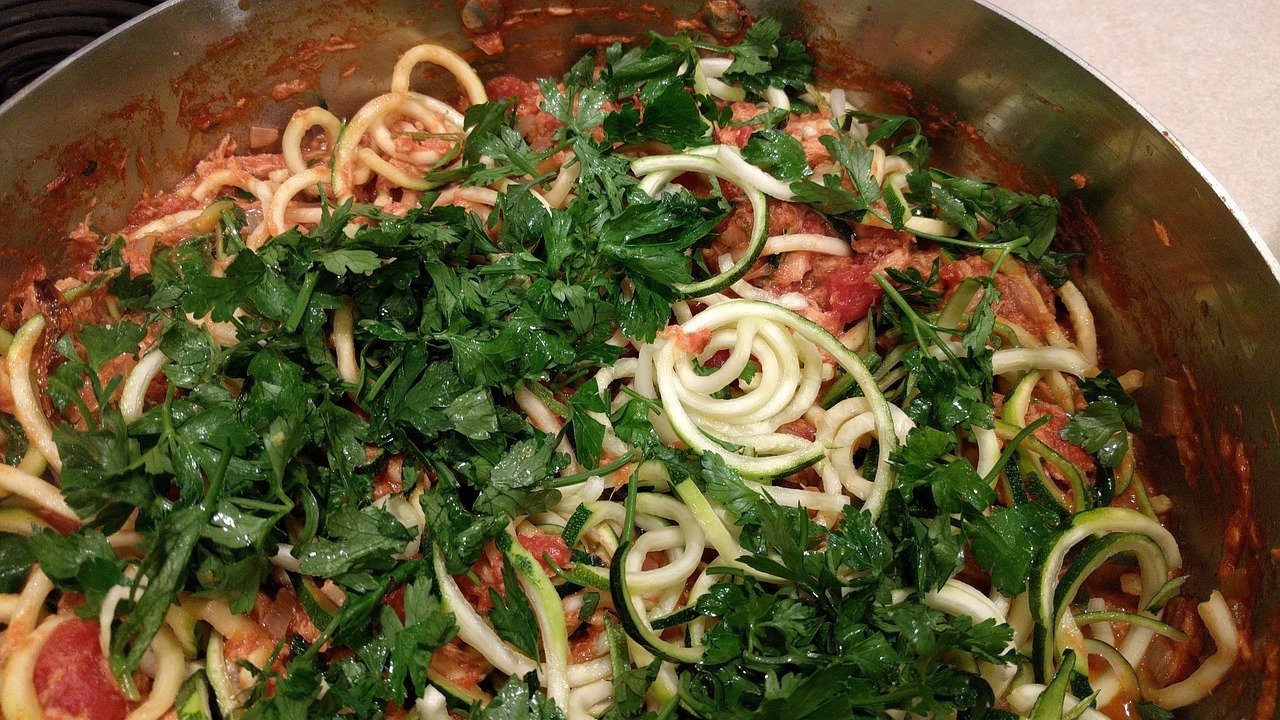In April 2019 researchers from Japan published the results of their study to assess the relationship between the incidence of hypertension and the intake of three major nutrients, protein, fats … Read more
Adding 6 g spice blend (basil, bay leaf, black pepper, cinnamon, coriander, cumin, ginger, oregano, parsley, red pepper, rosemary, thyme, and turmeric) to a high-saturated-fat, high-carbohydrate meal reduced the postprandial effect of the meal regarding the secretion of the inflammatory cytokine, IL-1β, in overweight/obese men
In March 2020 researchers from the USA published the results of their study to assess the postprandial effect of a blend of spices in a high-saturated-fat, high-carbohydrate meal on inflammatory … Read more
Can coronary artery disease be reversed by diets with normal levels of fat of plant origin that are low in saturated fat content?
In January 2019 researchers from the USA published their review to assess whether diets with normal levels of fat can reverse coronary artery disease. The researchers stated that whilst coronary … Read more
Food additives are one of the factors in ultra-processed foods causing concern, for whilst some food additives can be beneficial for human health, others may alter the composition of the gut microbiota and lead to inflammation, which in turn may lead to different forms of inflammatory disease
In October 2019 researchers from Qatar published their review of the association between a Western diet and chronic diseases. A Western diet is characterised by a high intake of energy-dense … Read more
Specific dietary factors and dietary patterns alter the gut microbiota profile, which is an essential factor in the development and progression of obesity
In December 2019 researchers from South Korea published their review on the effect of diet on the gut microbiota and how it is associated with obesity. Obesity is described as … Read more
Individuals with no history of diabetes and the metabolic syndrome should think carefully about whether they should follow the keto diet over a long period of time, especially as the potential long-term consequences are not yet known
In November 2019 researchers from Canada published their review on the pros and cons of the keto diet. This article is different in that the two opposing sides of the … Read more
A diet high in carbohydrates increases the risk of diabetes type 2, the metabolic syndrome and cardiovascular disease
In November 2018 researchers from India published their review of the evidence that links dietary carbohydrates to the incidence of diabetes type 2 and the metabolic syndrome together with their … Read more
Fortifying staple foods with vitamin A alone may make little or no difference to retinol levels or the risk of vitamin A deficiency but if micronutrients are also added then retinol levels may increase and the risk of vitamin A deficiency reduced
In May 2019 researchers from Singapore published the results of their review of the medical scientific literature to assess the effects of fortifying staple foods (sugar, edible oils, edible fats, … Read more
Reduced salt intake, omega-3 long-chain polyunsaturated fatty acid use and folic acid supplementation may reduce the risk for some cardiovascular events in adults, whereas combined calcium plus vitamin D appears to increase the risk of stroke
In July 2019 researchers from the USA published their review of the medical scientific literature to assess the effects of nutritional supplements and dietary interventions on cardiovascular outcomes in adults. … Read more
Polybrominated diphenyl ether
Polybrominated diphenyl ethers or PBDEs, are compounds used as flame retardants and are added to plastics, polyurethane foam, textiles, and electronic equipment to reduce the likelihood of ignition and to … Read more
Reducing total fat intake in children may not result in a reduction in weight or BMI
In July 2018 researchers from South Africa published their review of the medical scientific literature to assess the effect of total fat intake on measures of weight and body fat … Read more
Plant protein, as a part of a plant-based diet, and the resulting limitation of leucine and histidine intake, are associated with a reduction in both body weight and improved insulin resistance
In September 2018 researchers from the USA published the results of their study to assess the role of plant protein on body composition and insulin resistance in overweight individuals. A … Read more
Increased carbohydrate and fibre intake, as part of a plant-based high-carbohydrate, low-fat diet, are associated with a reduction in weight, BMI and fat mass and improved insulin resistance
In September 2018 researchers from the USA published the results of their study to assess the role of changes in carbohydrate intake on body composition and insulin resistance in overweight … Read more
A low-fat vegan diet is associated with decreased fat mass and an improvement in insulin resistance and insulin secretion
In March 2019 researchers from the USA published the results of their study to assess the role of dietary fat quantity and fatty acid composition in body composition, insulin resistance, … Read more
A low-calorie vegetarian diet and the Mediterranean diet are both effective in reducing body weight, BMI and fat mass, with the low-calorie vegetarian diet being better in reducing LDL-cholesterol levels and the Mediterranean diet better in reducing triglyceride levels
In March 2018 researchers from Italy published the results of their study to compare the effect of a low calorie vegetarian diet and the Mediterranean diet in improving cardiovascular risk … Read more
Working the night shift may result in a significant increase in calories, protein, carbohydrates, total fat, saturated fat, and calcium being consumed
In February 2019 researchers from Israel published the results of their study to compare dietary intake during a day shift and during a night shift in 132 female nurses who … Read more
Dietary interventions for shift workers should consider the role of mood as well as shift type
In February 2019 researchers from Australia published the results of their study to assess the relationship between shift work, sleep, mood, and diet. 52 nurses who worked shifts (46 female, … Read more

















